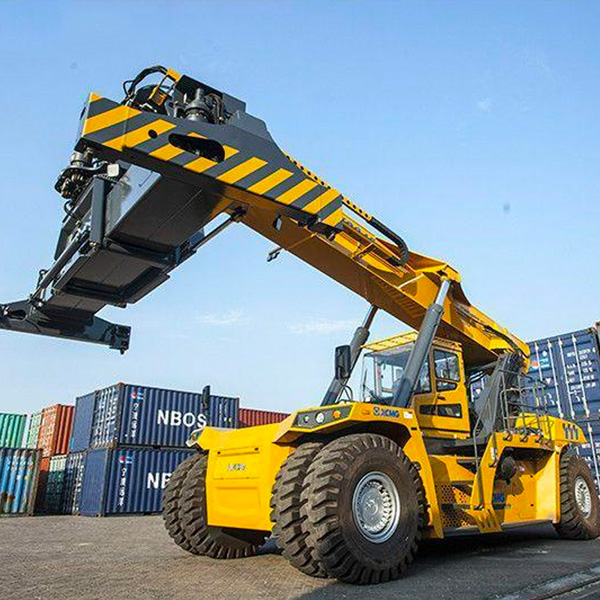Thinking about buying an excavator? It is a big investment, so you want to be sure you are making the right choice. There are a lot of things to consider technical specs, the type of machine, your project’s needs, and of course, your budget. Let’s break it all down so you can make the best decision for your business or project.
Types of Excavators And What They are Good For
Not all excavators are built the same. Here is a quick rundown of the main types, and where each one shines:
- Mini Excavators:
Small, agile, and perfect for tight spaces or light work think landscaping or urban jobs.
- Hydraulic Excavators:
The all-rounders, coming in both crawler good for rough, uneven ground and wheeled versions great for paved areas.
- Long Reach Excavators:
Got to dig deep or demolish from a distance? These have extra-long arms for those tough-to-reach spots.
- Suction Excavators:
Use vacuum power to clear away soil or debris gently often used for utility work.
- Amphibious Excavators:
These float and can handle swampy or flooded areas.
- Zero Tail Swing Excavators:
Their counterweight does not stick out past the tracks, so they are great in confined spaces.
Tip: If your project demands more power or capacity, check out the available large excavators for sale to ensure you get the right size for the job. Match the excavator type to your main project needs to avoid over or under-buying.

Key Features and Specs to Look For
Do not just buy the first shiny machine you see. Here is what really matters:
- Engine Power:
Check horsepower and torque more is not always better, but you need enough for the job.
- Hydraulic System:
Look at the flow rate and pressure these affect how much the excavator can lift and how responsive it feels.
- Operating Weight & Breakout Force:
Heavier machines are usually more stable and can handle tougher digging.
- Attachment Compatibility:
Will you need different buckets, hammers, or grapples? Make sure the excavator can easily swap attachments.
- Other Features:
Think about swing radius, boom reach, and how strong the undercarriage is.
Pro tip: Make a checklist of what you need, then compare models side-by-side.
Figuring Out What You Really Need
Before you buy, ask yourself a few questions:
- How Big or Small Is My Project?
- Large projects = bigger, more powerful excavators.
- Small-scale jobs = mini or compact machines to save money and space.
- What is the Terrain Like?
- Uneven? Crawler tracks are your friend.
- Wet or Marshy? Go amphibious.
- Confined? Zero tail swing models keep things safe.
- What Attachments Will I Need?
- List the tasks: digging, breaking, lifting, etc.
- Check if your chosen excavator can handle all those attachments.
How Much Will It Cost?
Excavators are not cheap, so let’s talk numbers.
Equipment Purchase Costs
- New vs. Used:
New models cost more up front but come with warranties and the latest tech. Used ones are cheaper but may require more maintenance.
- Brand Matters:
Well-known brands often have better resale value.
- Features Add Up:
More bells and whistles = higher price.
Operating & Maintenance Expenses
- Fuel:
Bigger machines burn more, so factor in daily operating costs.
- Repairs & Upkeep:
Regular maintenance oil changes, filter swaps, track checks keeps costs in check and avoids nasty surprises.
- Spare Parts:
Are they easy to get and reasonably priced? This matters for long-term ownership.
Financing & Leasing
- Leasing:
Lower monthly payments, less commitment, but you will not own the machine.
- Financing:
Higher monthly payments, but you own the excavator at the end.
- Watch for:
Interest rates, terms, and any restrictions like limits on usage with a lease.
Should You Buy New or Used?
Here is a quick breakdown:
Buying New:
- Latest tech, full warranty, less downtime
- Higher upfront costs
Buying Used:
- Lower price, great for tight budgets
- Possible hidden issues, limited warranty
Bottom line:
Go new if downtime’s not an option and you want peace of mind. Go used if you are watching your pennies and can handle a little risk.
Keeping It Running: Maintenance & Operating Costs
Do not forget:
- Schedule regular maintenance check fluids, inspect tracks, replace filters.
- Keep an eye on fuel use better efficiency = lower costs.
- Invest in good parts for fewer breakdowns and longer lifespan.
Finding a Trusted Supplier or Dealer
Do not just buy from anyone! Here is how to spot a good supplier:
- Check Reviews:
See what other customers say.
- Ask About Warranties:
What is covered, and for how long?
- After-Sales Support:
Do they offer help if something goes wrong? Are replacement parts easy to get?
- Look for Certifications:
Legit dealers often have industry credentials.
Final Tips
- Do your homework.
Take your time this is a big investment.
- Visit dealers in person.
Test the equipment if possible.
- Get everything in writing.
This includes warranties, service agreements, and financing terms.
Buying an excavator does not have to be overwhelming. Keep these tips in mind and you will find the right machine for your needs without any headaches down the line!
